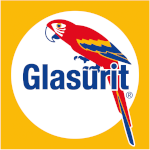Charter of Turin
Published: 20/04/2013
20th April 2013. Charter of Turin
Landmark international protocol indicates pathway to official recognition of the heritage significance of historic vehicles.
On 29 January 2013, the Turin Charter came into force, having been adopted by the Fédération Internationale des Véhicules Anciens (FIVA) General Assembly in October 2012. This policy paper highlights the cultural and historical importance of all road vehicles and advocates their responsible treatment and use. These principles andguidelines provide support for owners of historical vehicles in the use, maintenance, repair and restoration of their vehicle. The charter is a landmark document, recognised worldwide. It is FIVA’s reaction to the requirement from international political organisations such as the EU Parliament and UNESCO for such an international voluntary protocol setting standards for the preservation and use of historic vehicles.
Its adoption by the international historic vehicle movement paves the way for official accreditation of our movement, and its international representative body FIVA, by the most senior heritage promoting authority in the world, UNESCO. In adopting the Charter of Turin, the historic vehicle movement follows in the footsteps of historic ships and railways enthusiasts who have the Barcelona Charter the Riga Charter respectively.
Some, who have failed to grasp the political significance of this important development have sought to portray the charter as an example of officialdom constraining the use and preservation of historic vehicles. Nothing could be further from the truth. The freedoms that we enjoy to own and moreover use our historic vehicles are jealously guarded and valued. But as with all freedoms they come with responsibility. Freedom without responsibility is after all anarchy, and officialdom’s response to anarchy is legislation. The Charter of Turin is the very demonstration of the responsibilities that we voluntarily acceptand its existence proves to nternational and national bodies that we can responsibly manage the freedoms of use that we enjoy without the need for
recourse to restrictive legislation.
The Charter was ratified on 29 January 2013, at a ceremony held at the Mercedes Benz Heritage Centre in Stuttgart, exactly 127 years after Carl Benz received patent no. DRP 37435 for his three-wheeled vehicle with a gas-powered engine from the Imperial Patent Office in Berlin. This date signified the birth of the automobile and marked the beginning of personal motorised transportation and was thus particularly poignant for such an important event.
“If we want to be able to experience classic vehicles in the future, we must make sure they are recognised as a part of our culture worth protecting now”, said FIVA president Horst Brüning. “And that doesn’t mean putting old vehicles in museums. Quite the opposite, we hope this charter leads to people seeing more classic vehicles on public roads. This is the only way to share their history and the fascination they hold with everybody.”
To read the Charter of Turin in full go to the FIVA website at: www.fiva.org










